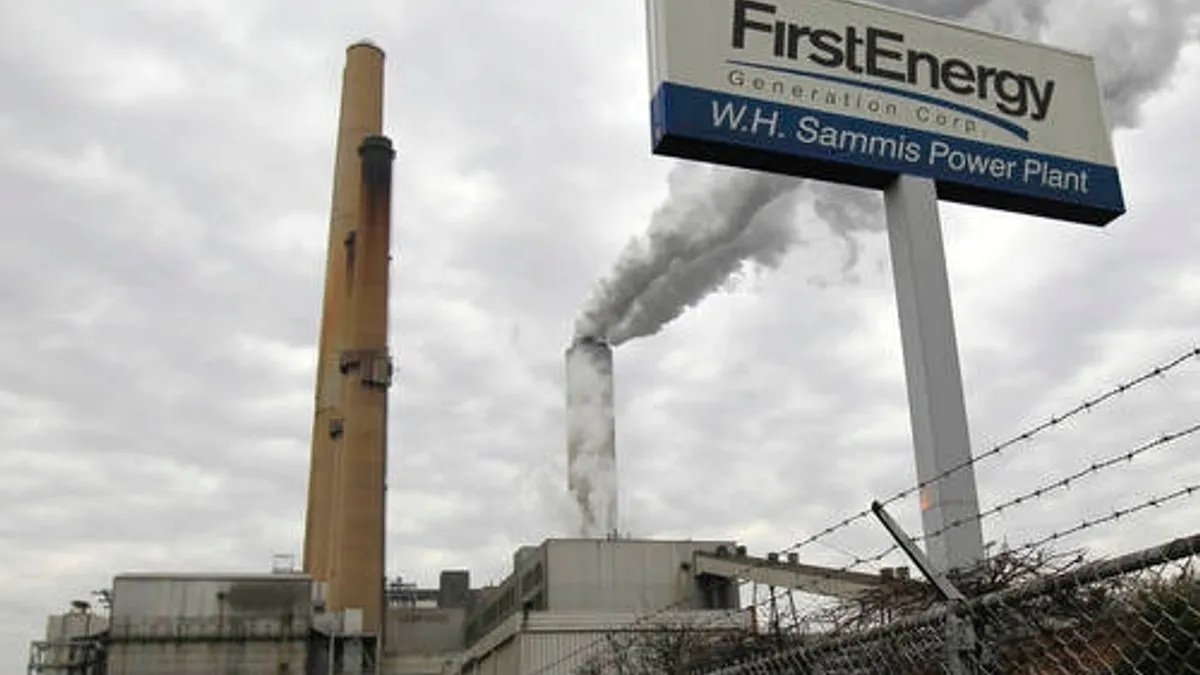Dive Brief:
- A judge's decision on the resolution of coal contracts, expected today, could help determine the fate of FirstEnergy's competitive generation business. The company has been threatening bankruptcy since subsidies for some of its Ohio coal and nuclear fleet was rejected last year.
- The Pittsburgh Post-Gazette reports on the case, where FirstEnergy has halted contracts for coal deliveries on the CSX and BNSF railroads, after deciding to close some coal plants to comply with the Mercury and Air Toxic Standards rule. The railroads argue the utility will be on the hook for years of lost profits, setting the stage for a showdown over the future of FirstEnergy's generation arm.
- Last year, the company revealed in a Form 8-K with the U.S. Securities and Exchange Commission that it was putting its plants up for sale as it sought to exit the merchant power business.
Dive Insight:
A judge is expected to rule today on whether environmental regulations FirstEnergy says forced the closure of several power plants trigger contract clauses that would limit what it owes to two railroads.
FirstEnergy is arguing that the Mercury and Air Toxic Standards rule (MATS) forced the closure of two plants and that, because it couldn't control the decision, it is not responsible for the coal delivery contracts. The railroads want to guarantee they will receive profits through 2025.
Speculation about a possible bankruptcy is not new, but the Post-Gazette reports that if FirstEnergy is still on the hook for coal delivery contracts, then it could hasten the decision over whether or not to file for bankrupcty.
FirstEnergy has struggled to keep its power plants profitable, and efforts to subsidize them have so far been blocked. Lawmakers in Ohio introduced a bill that would provide payments to keep FirstEnergy’s Ohio nuclear plants operating. The proposal would create a Zero Emission Nuclear Resource program to compensate the FirstEnergy’s nuclear plants for the “clean, reliable and secure power they generate."
Similar scenarios are playing out in other states. Connecticut lawmakers in March introduced legislation that would create a solicitation that could provide a power purchase agreement for the state’s sole nuclear plant, Dominion Energy’s Millstone station. New Jersey is also considering a similar proposal.
Prior to that, New York’s Public Service Commission has been working to keep Exelon's nuclear plants open, and similar efforts are ongoing in Illinois’, where the legislature passed ZECs as well. Both efforts are being contested.















